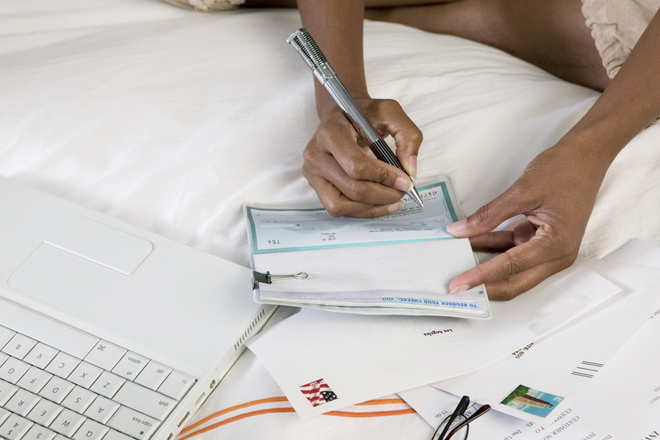A longer version of this piece originally appeared on Ann Nichols’ Open Salon blog.
 Twenty-five years after taking out my student loan, I can say there’s a decent chance I’ll die owing enough money to buy a small island. My story may or may not be typical, but it proves how easily someone can find themselves in my position with a little lack of planning, a few unforeseen events and an unforgiving economy.
Twenty-five years after taking out my student loan, I can say there’s a decent chance I’ll die owing enough money to buy a small island. My story may or may not be typical, but it proves how easily someone can find themselves in my position with a little lack of planning, a few unforeseen events and an unforgiving economy.
After graduating from college, I had no idea what line of work to pursue. I was unhappy and insecure, and I decided that practicing law was a more reliable alternative to getting a doctorate in English or trying to make it as a writer. My parents thought it was a waste of my actual talents, and my friends felt it was a terrible idea based on my temperament. Undaunted, I took the LSAT and got into several schools before finally picking the most expensive in the most expensive city. There were loans available, and I borrowed the maximum amount available — just enough to cover tuition, rent, food, books and a subway pass.
For three years I kept borrowing money, even as my distaste for law school grew. I suspected I was making a huge mistake, but at that point I didn’t think I could get out of it. If I didn’t finish and pass the bar, I couldn’t get the job to pay back my exorbitant loans.
By the time I was welcomed to the Massachusetts Bar in 1990, I was a clueless, patently ambivalent candidate competing for openings against people far more determined than I. One interviewer was kind enough to tell me that I needed to be more confident during my interviews, or I would never get a job as a lawyer.
After a round of rejections, I cut my losses, moved back to Michigan to open a solo practice, and managed to keep up with my loan payments. For a while, at least. Then I got pregnant, and my two-month confinement to bed forced me to give away my case load to other firms. Within a year, I couldn’t afford to keep the office open. At that point, my husband was earning good money, and we decided that I could work part-time from home (translation: be a mom for as long as possible). But then his job changed dramatically, and we had to make do on about half of his previous salary with consumer debt and a mortgage based on our “old” income.
We scaled back. We’ve stopped taking vacations, rarely eat out, and my husband now drives a car without air conditioning or a front bumper.
We’re also surviving. We have a roof over our heads, enough to eat, health insurance and cars that run, all of which makes us immensely grateful. What we don’t have is more than we absolutely need. It’s been years since I could afford to pay the $1,000 plus each month owed to my student loan creditors. I defer, I default, I “rehabilitate,” and the amount billows into something larger and more terrifying still.


